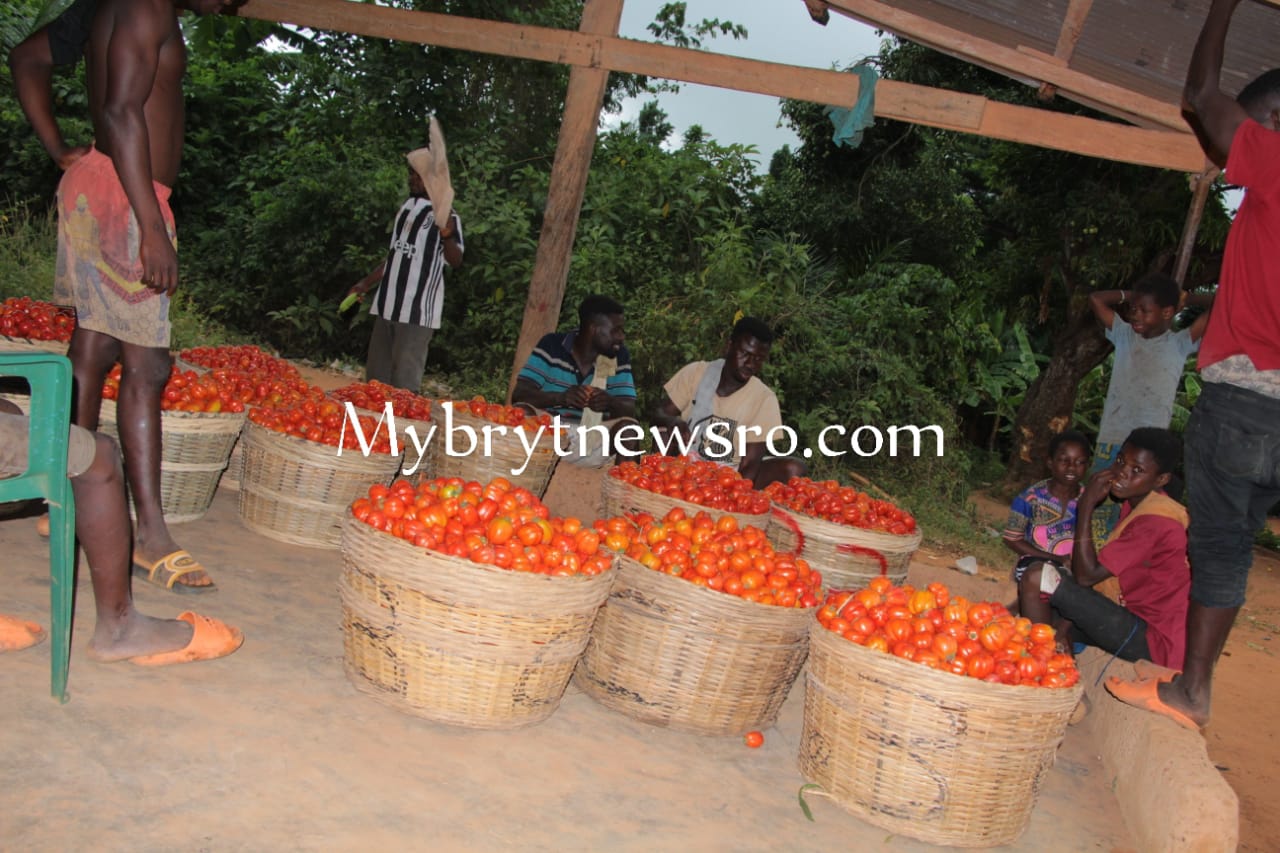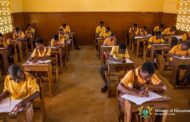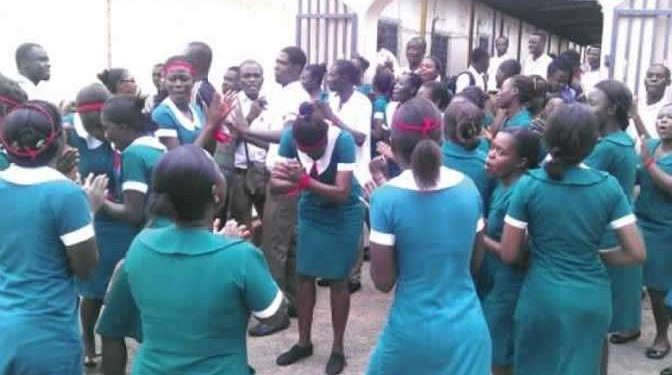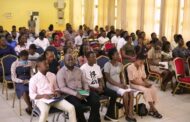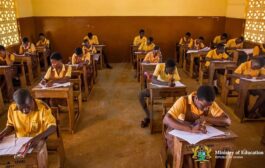The head teacher of Nsuta Dahomey D/A Basic School in Fanteakwa South District in the Eastern region, Dennis Ayivi is appealing to the government to extend the school feeding program to the school to help retain pupils, particularly during tomatoes harvesting season such is this time.
Pupils abandon school to harvest tomatoes and go to the market with their parents.
Absenteeism is therefore high during tomato harvesting season in June and July every year. The situation is affecting the academic performance of the students.
On a visit to the school on Friday, June 3, 2022, Senior Journalist Obed Ansah observed empty classrooms as none of the pupils reported to the school.
Two female teachers and the head teacher were however present.
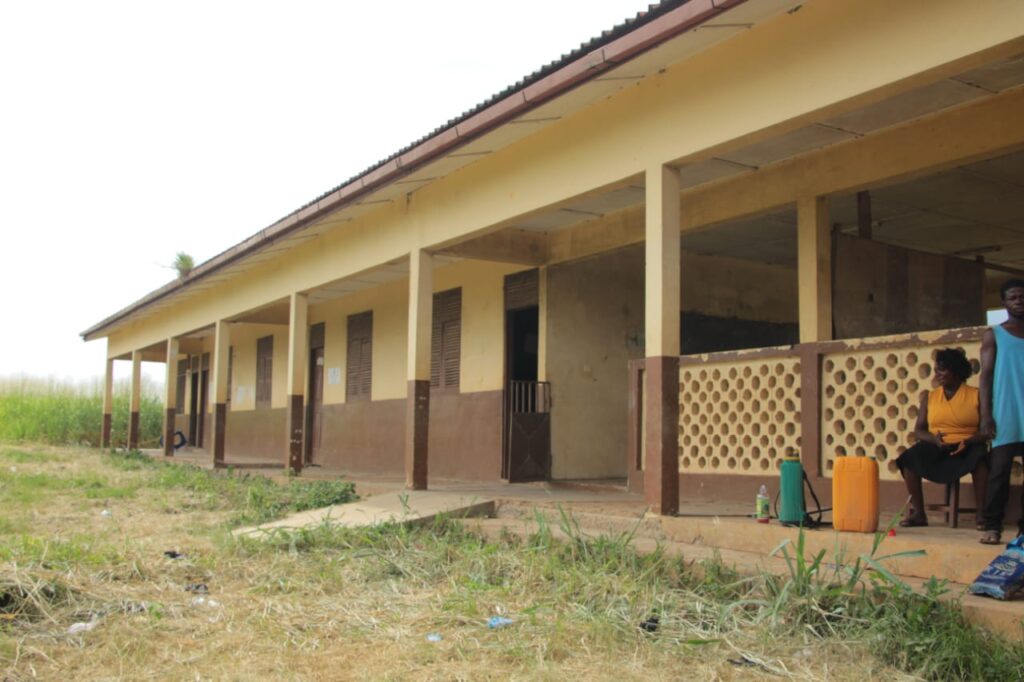
Some of the children were seen roaming in the community and others were seen hunting for birds. Few were seen carrying tomatoes to the buying center whilst the majority had left with their parents to the market centers in Obouho, Begoro, and Asesewa.
Abodobi and its surrounding communities produce large quantities of tomatoes every year. During the harvesting period, farmers contract laborers and pay them about Ghc50 a day making it lucrative for the children.
However, most parents rather use the children to harvest tomatoes on their farms.
Due to the deplorable nature of the road, vehicles are unable to come to the community. The few vehicles and tricycles that come to the community charge exorbitant fares.
Hence some farmers prefer using their children to carry the tomatoes and other farm produce to the market centers.
The headteacher of Dahomey D/A Basic School Dennis Ayivi said, despite many engagements through the parent’s teachers association (PTA) and School management committee(SMC) to end the menace, pupils continue to abandon classrooms during tomatoes harvesting season, particularly on market days.

“It has become a problem in the system. It is because of the season, that they are harvesting tomatoes because of that most of the pupils have taken part in the harvesting because it warns them something small and you know this area is rural and even the parents struggle to take care of their wards. So if there is little opportunity for them to make money on themselves they don’t see the reason why they should stop their pupils to do that, but we are trying our best to educate them on how important education is and I believe in the short time they will understand. Friday is a market day for this area. Two markets are closer to this area, Asesewa, and Begoro and because of this market, they use to accompany their parents to the market” the headteacher said.
Dahomey D/A Basic School serves Abodobi, Yaayaso, and other surrounding farming communities.
The school is however facing challenges such as inadequate teaching and learning materials, furniture, and stationery.
The lack of a school feeding program in the school is also affecting efforts to ensure pupils stay in school.
The school has only three classrooms serving KG to class six pupils with a total population of about 45 school children.
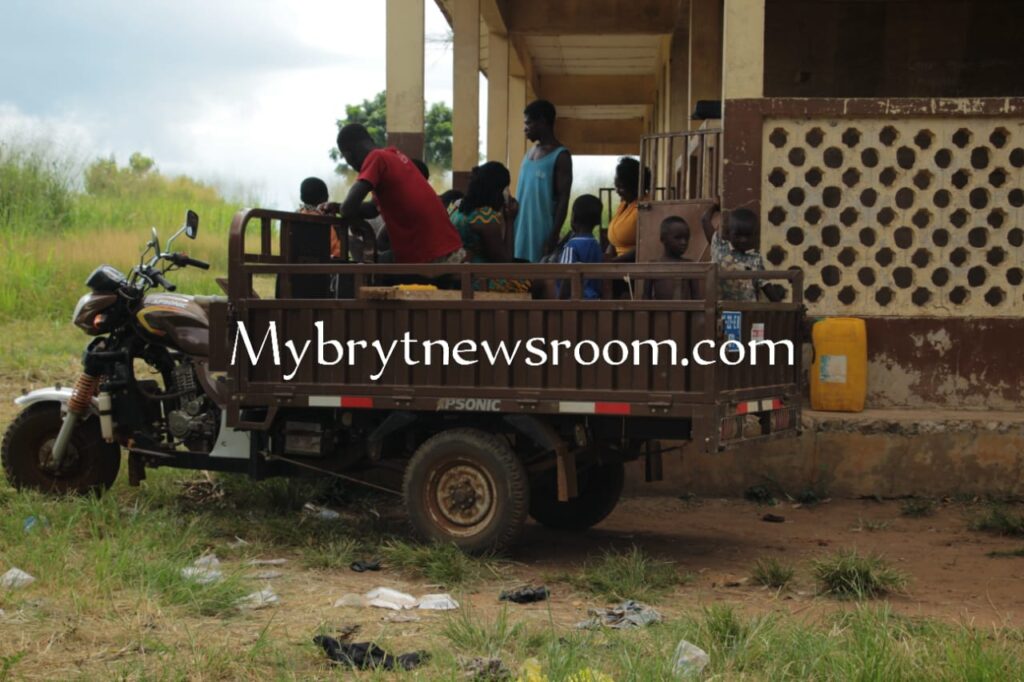
Teachers also refuse to post to the community due to lack of accommodation and electricity.
Assemblymember Samuel Kpartey blamed the high absenteeism among the pupils on these challenges.
“Teachers don’t accept posting to this school because there is no electricity in this community. The few ones who accept posting stay in Begoro and commute every day on a motorbike to school so they are always late.
So when the pupils go to school and the teachers do not come on time they all leave to their homes. The next time when the teachers report early the pupils assume the teachers may not come so they sit at home. So as an assembly member I have written to the assembly to connect us to the national grid to enable the teachers to stay and teach”
According to UNESCO, the essence of education is to help an individual navigate life and contribute to society once they become older.
Research shows that People who attended school and attained a higher level of education are considered more employable and likely to earn more.
In developing, low-income countries like Ghana, for example, there is a projected 10 percent increase in a person’s future income for every additional year of education.
Education helps eradicate poverty and hunger, giving people the chance at better lives.
For this reason, parents must strive to make their kids attend school as long as possible. Hitherto, UNESCO enjoins the government to work toward promoting easier access to education for both children and adults.
Fortunately, Dahomey D/A Basic School has been selected as one of the Ghana Accountability for Learning Outcomes Project (GALOP) schools in the country hence will soon receive funds to fix the challenges facing the school to improve quality education.
Source: Mybrytnewsroom.com/Obed Ansah



